Science Salon
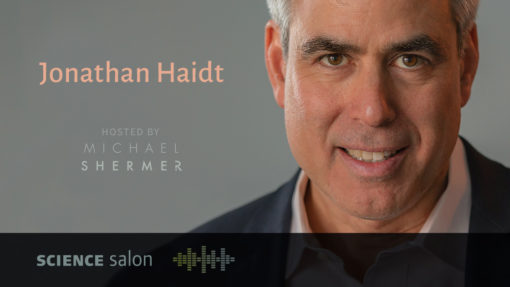
In this fascinating dialogue Dr. Haidt and Dr. Shermer discuss what has been going wrong on many college campuses in the last few years. Speakers are shouted down. Students and professors say they are walking on eggshells and are afraid to speak honestly. Rates of anxiety, depression, and suicide are rising—on campus as well as nationally. How did this happen?
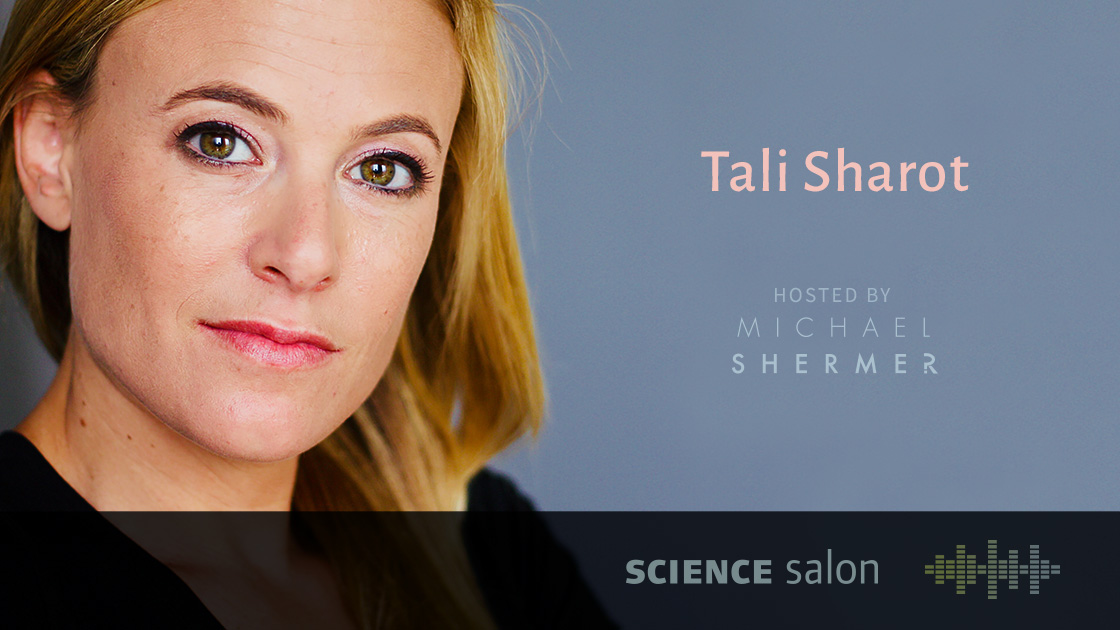
Cognitive neuroscientist Tali Sharot takes us on a thrilling exploration of the nature of influence. She and Shermer discuss how we can influence, for example, climate deniers to accept climate science, anti-vaxxers to accept vaccines, and creationists to accept evolution. It turns out, for example, that many of our instincts—from relying on facts and figures to shape opinions, to insisting others are wrong or attempting to exert control—are ineffective, because they are incompatible with how people’s minds operate.
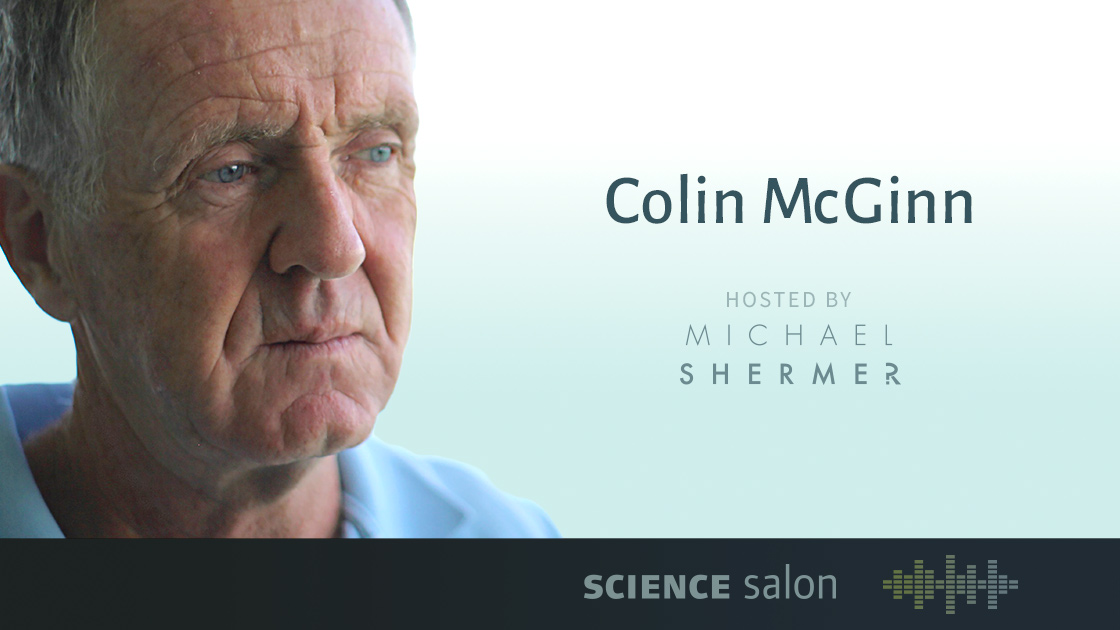
In their second Science Salon conversation Michael Shermer and Colin McGinn discuss paradoxes and puzzles of philosophy, pseudo-questions, realism v. antirealism, how to deal with unknown unknowns, immortality and the nature of the self and soul.
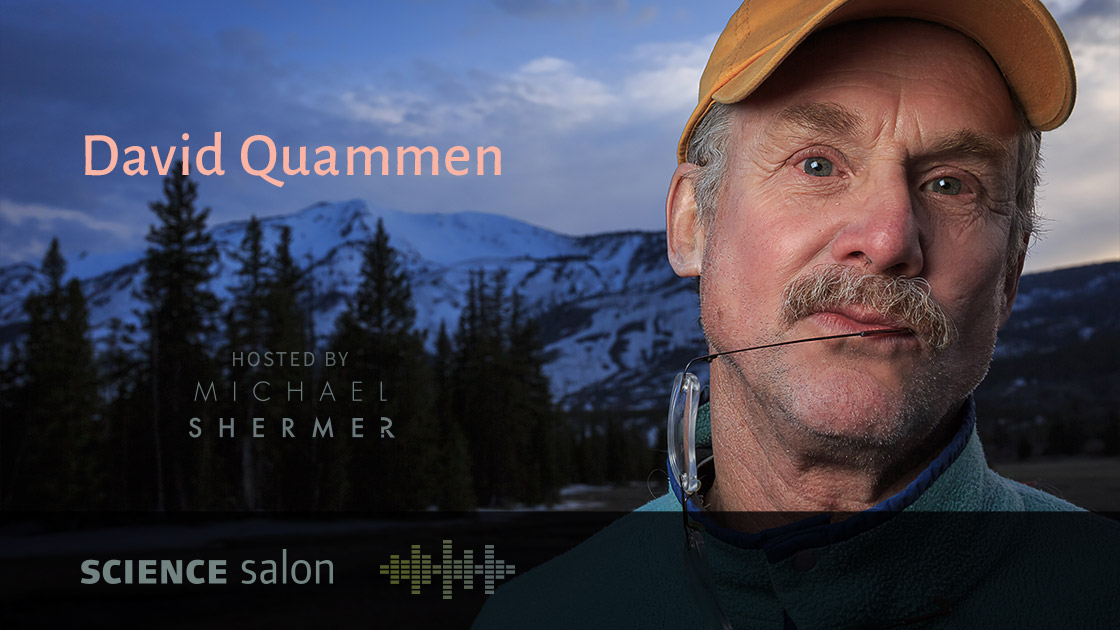
In Science Salon # 33, Michael Shermer talks with David Quammen, one of the best nature and science writers of our generation, about his new book on the history of one of the most exciting revolutions in evolution and genetics that is unfolding before our eyes.
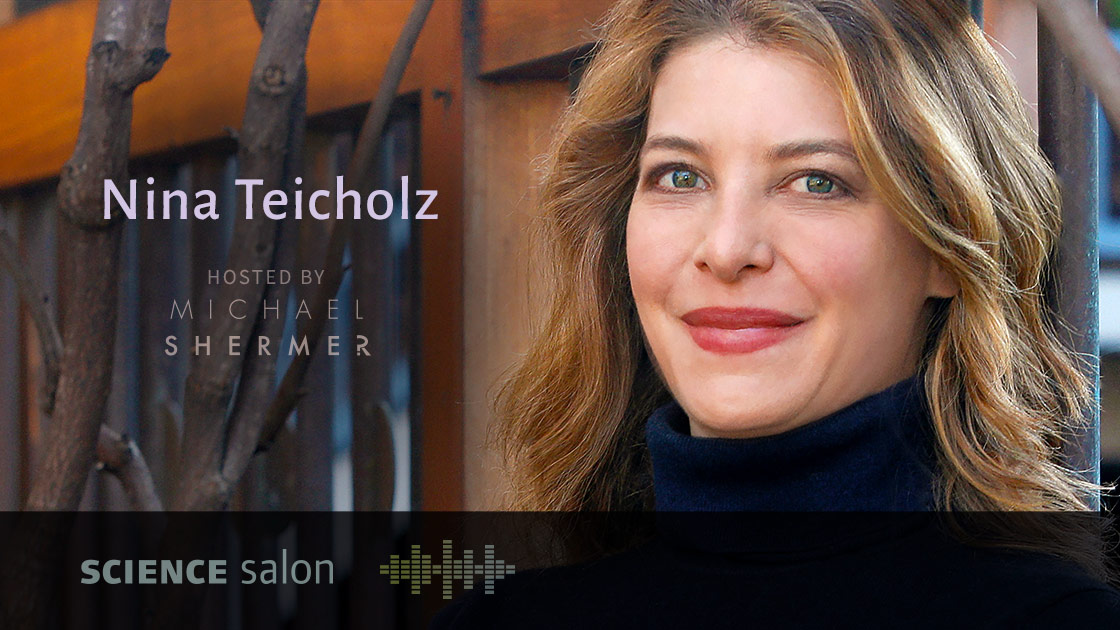
In Science Salon # 32, Michael Shermer talks with investigative journalist Nina Teicholz about the scientific literature on diet and nutrition, the link (or lack thereof) between dietary cholesterol and heart disease, the history of the government’s recommendation of what constitutes a healthy diet and why they got it so wrong, statins and heart disease, exercise and nutrition, and much more…
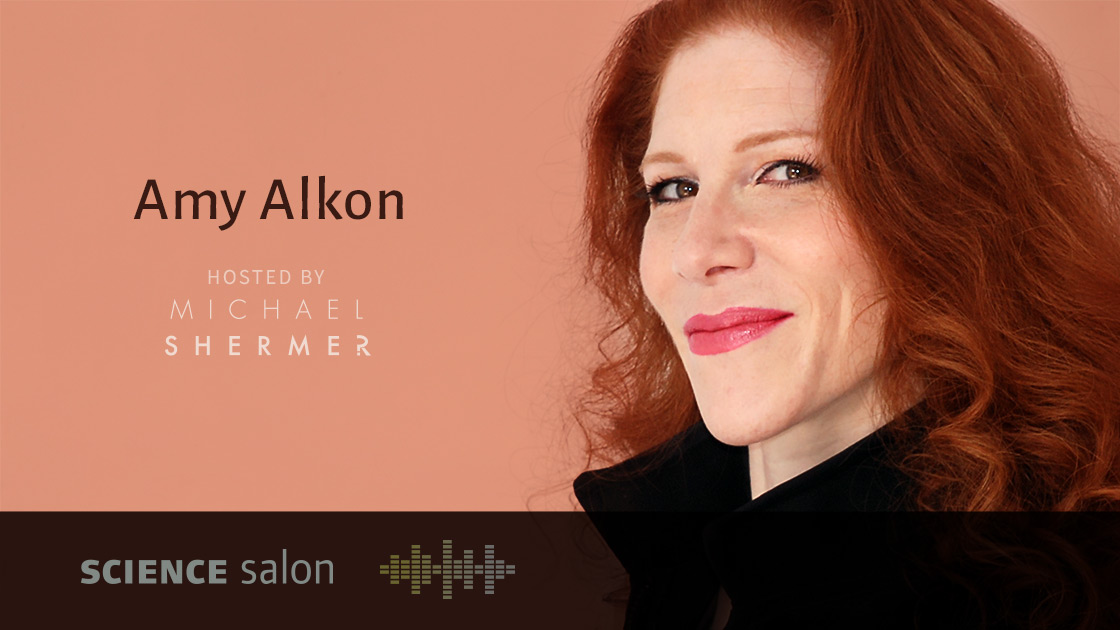
Science writer and weekly advice columnist Amy Alkon debunks widely-accepted but scientifically unsupported notions about self-esteem, shame, willpower, and more and demonstrates that thinking your way into changing (as so many therapists and self-help books advise) is the most inefficient way to go about it. Shermer and Alkon also get into the #metoo movement, evolutionary psychology, politics, depression, suicide, Jordan Peterson, and other fascinating topics.
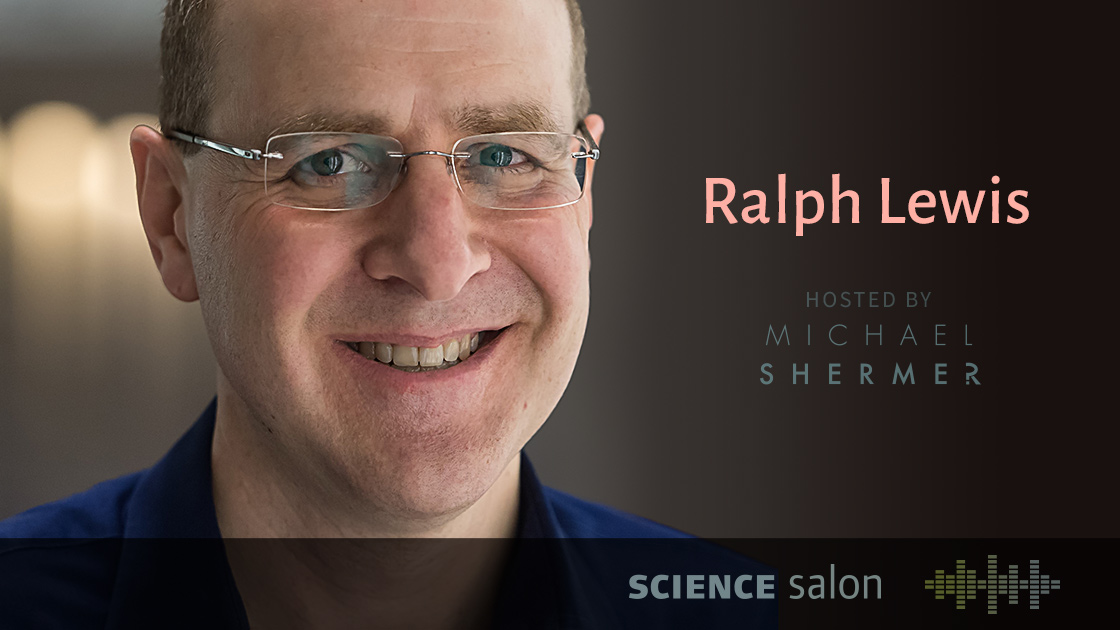
In Science Salon # 30, Michael Shermer talks with University of Toronto psychiatrist Dr. Ralph Lewis, the author of the new book Finding Purpose in a Godless World: Why We Care Even if the Universe Doesn’t about helping cancer patients (and others facing death) to cope without depending on religion.

After Colin McGinn commented publicly, and critically, on Michael Shermer’s Scientific American column on the mysteries of consciousness, free will and God, Shermer invited the philosopher on this podcast to discuss the topics in detail in order for everyone to glean a deeper understanding. A fruitful conversation ensued on these and other important topics.
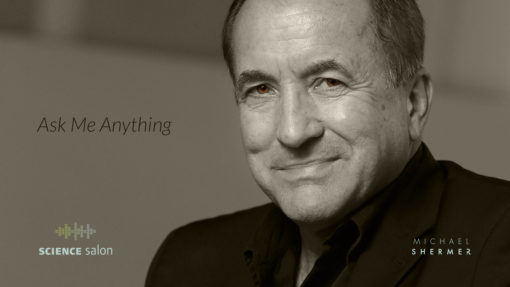
Shermer answers 28 questions from listeners and subscribers about: science and skepticism; belief in God, Jesus, and religion; free will; Jordan Peterson; human nature; climate change; UFOs; ADHD; repressed memories; freedom of speech; medical quackery; capital punishment; and the future of humanity.
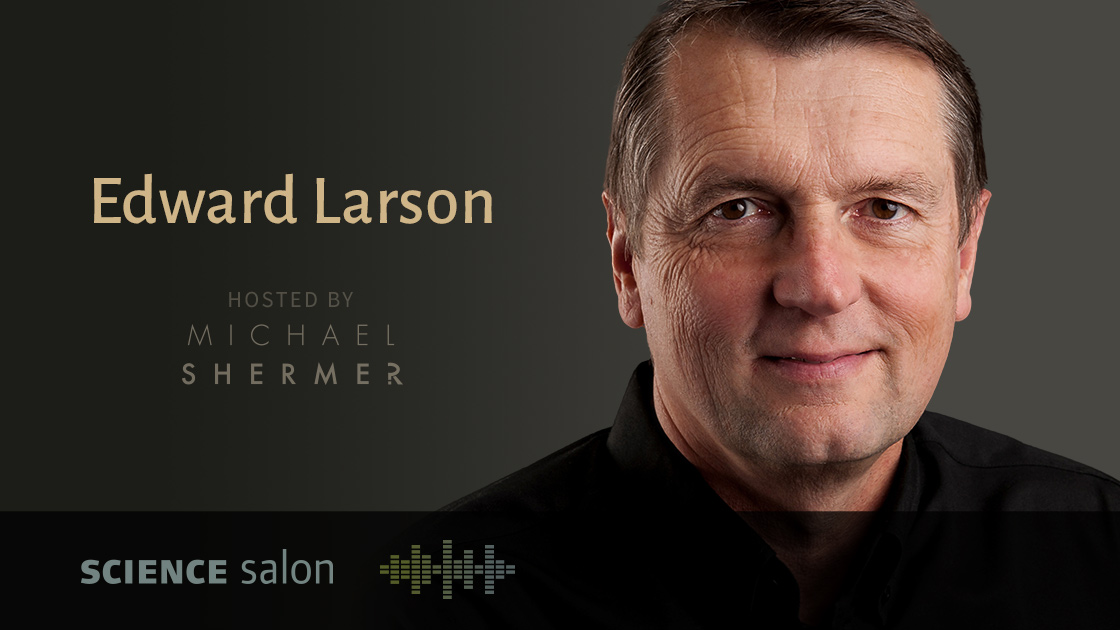
Distinguished historian and Pulitzer Prize-winning author Edward Larson and Michael Ruse, philosopher of science and Gifford Lecturer, offer their distinctive viewpoints on the sometimes contentious relationship between science and religion.
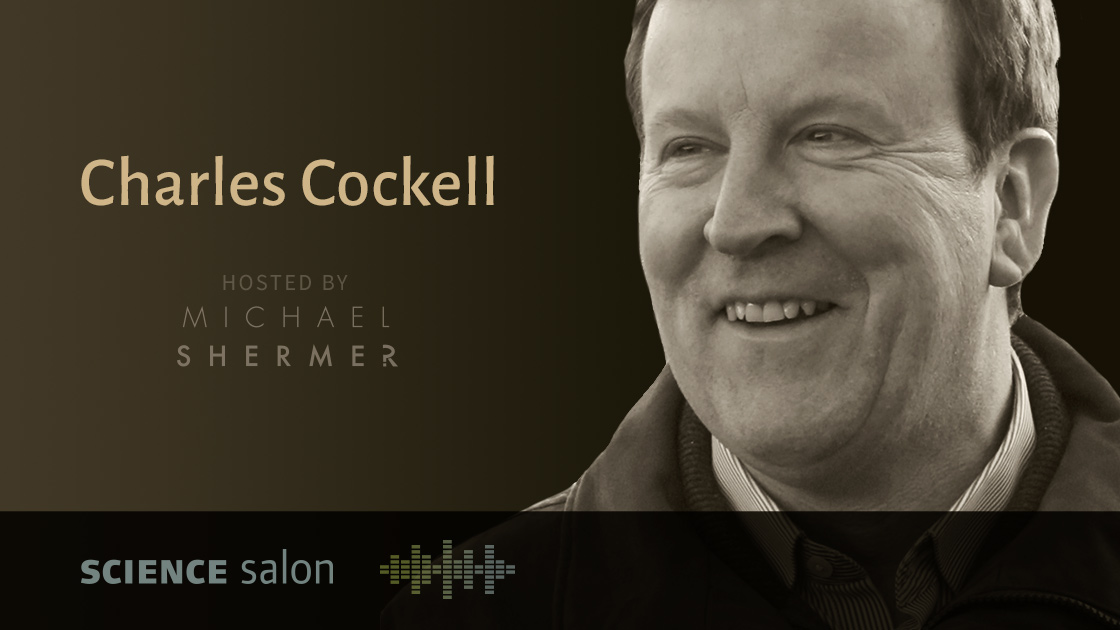
Shermer and Cockell discuss: the origins of life on earth; the possibility of finding life on Mars and, if we did, would it have something like DNA, albeit with different base pairs?; Fermi’s paradox: if the laws of physics and evolution are so common throughout the universe, and there are so many earth-like planets in our galaxy alone (estimated to be in the billions), where is everyone?; humanity becoming an interplanetary species (possibly the first), and if so what type…
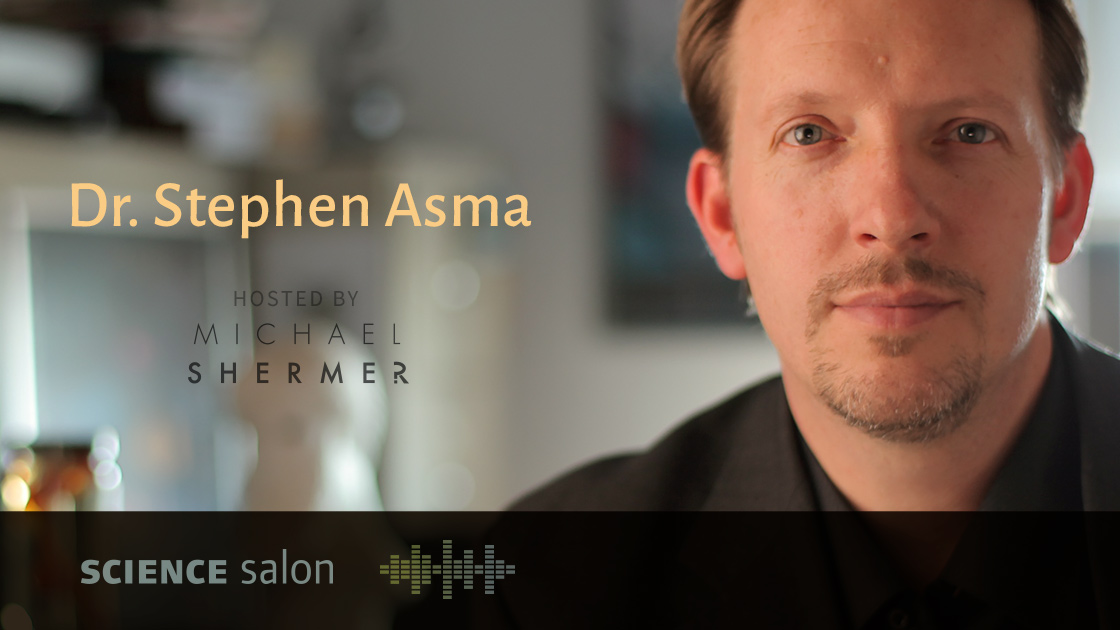
Professor of Philosophy Stephen Asma argues that there are many forms of human suffering and vulnerability that are beyond the reach of help from science. Like art, religion has direct access to our emotional lives in ways that science does not. Asma and Shermer discuss the relationship of science and religion, why people believe in God, atheism vs. agnosticism, the “new atheists”, humanism and the need for social and spiritual community, and other hot topics.
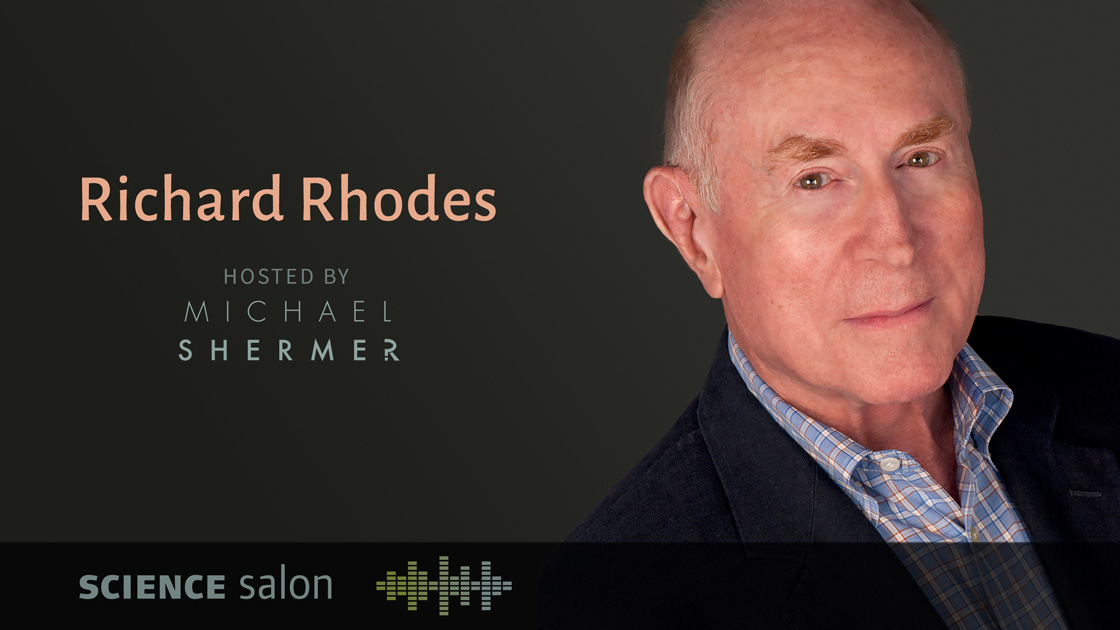
Shermer speaks with Pulitzer Prize-winning author Richard Rhodes about: nuclear weapons, North Korea, Iran, and Russia, the psychology of Mutual Assured Destruction (MAD), human violence and its causes, the “Bullet Holocaust” (the millions of Jews and others shot to death in Eastern Europe before the death camps ramped up their killing by gas), how people become serial killers (the socialization of violence), and the fascinating history behind energy transitions over time.
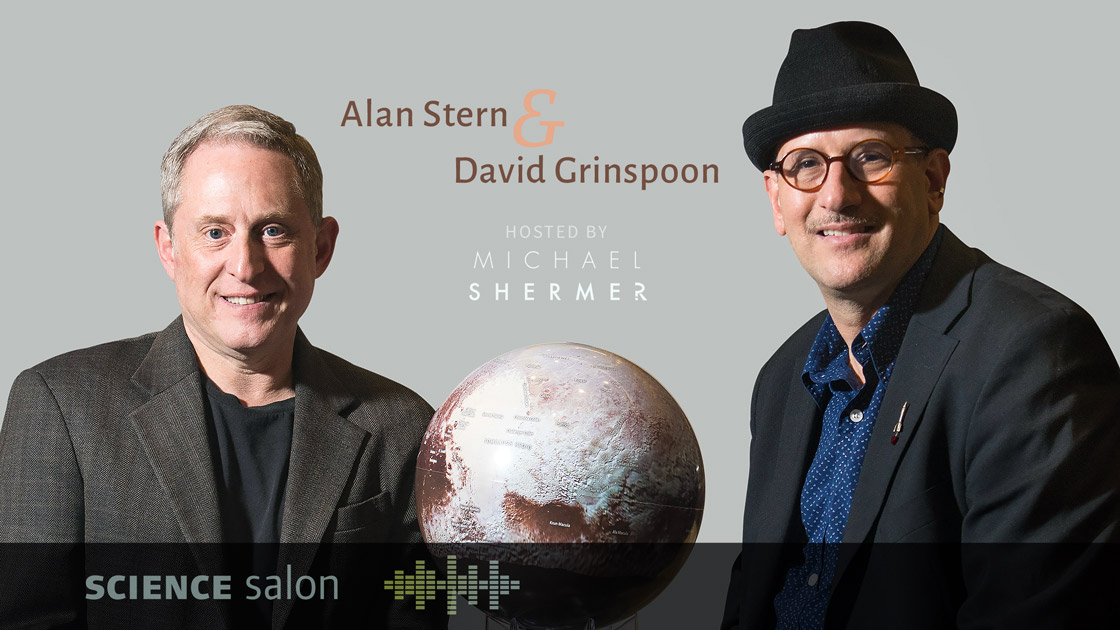
Dr. Alan Stern and co-author Dr. David Grinspoon recount the story of the men and women behind NASA’s first mission to Pluto: of their decades-long commitment and persistence; of the political fights within and outside of NASA; of the sheer human ingenuity it took to design, build, and fly the mission; and of the plans for New Horizons’ next encounter, 1 billion miles past Pluto in 2019. This is a riveting account of scientific discovery, and of how much we…
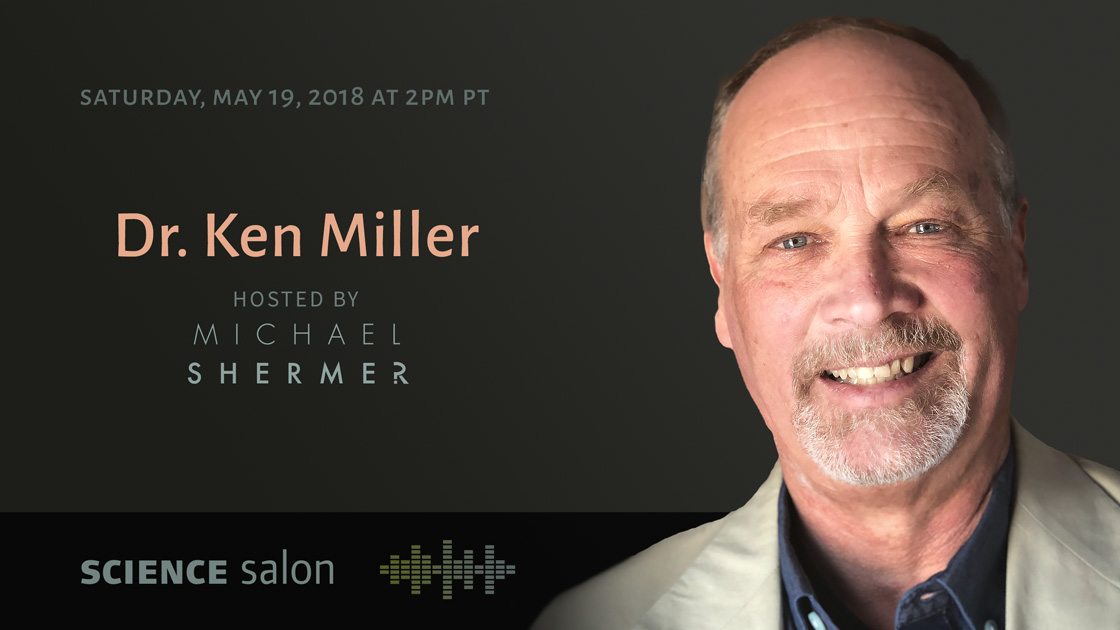
Dr. Miller presents a radical, optimistic exploration of how humans evolved to develop reason, consciousness, and free will, contra scientists such as Richard Dawkins and Sam Harris who tell us that our most intimate actions, thoughts, and values are mere byproducts of thousands of generations of mindless adaptation.
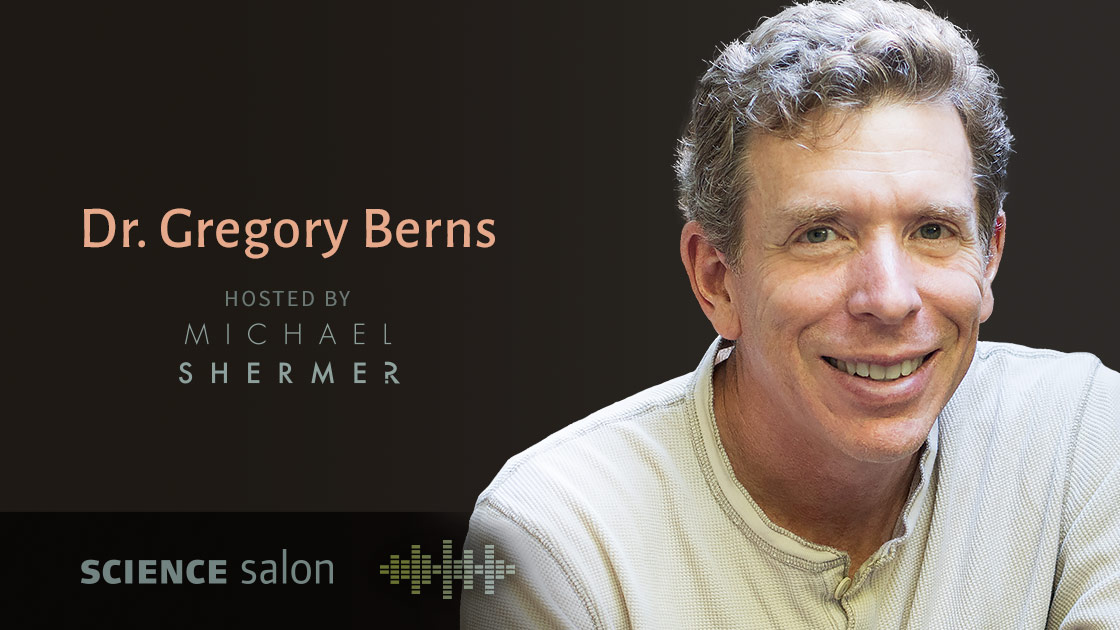
Shermer speaks with Dr. Gregory Berns, Distinguished Professor of Neuroeconomics and Director of the Center for Neuropolicy and Facility for Education and Research in Neuroscience. Berns is famous for his use of fMRI to study canine cognitive function in awake, unrestrained dogs with the goal to non-invasively map the perceptual and decision systems of the dog’s brain and to predict likelihood of success in service dogs.
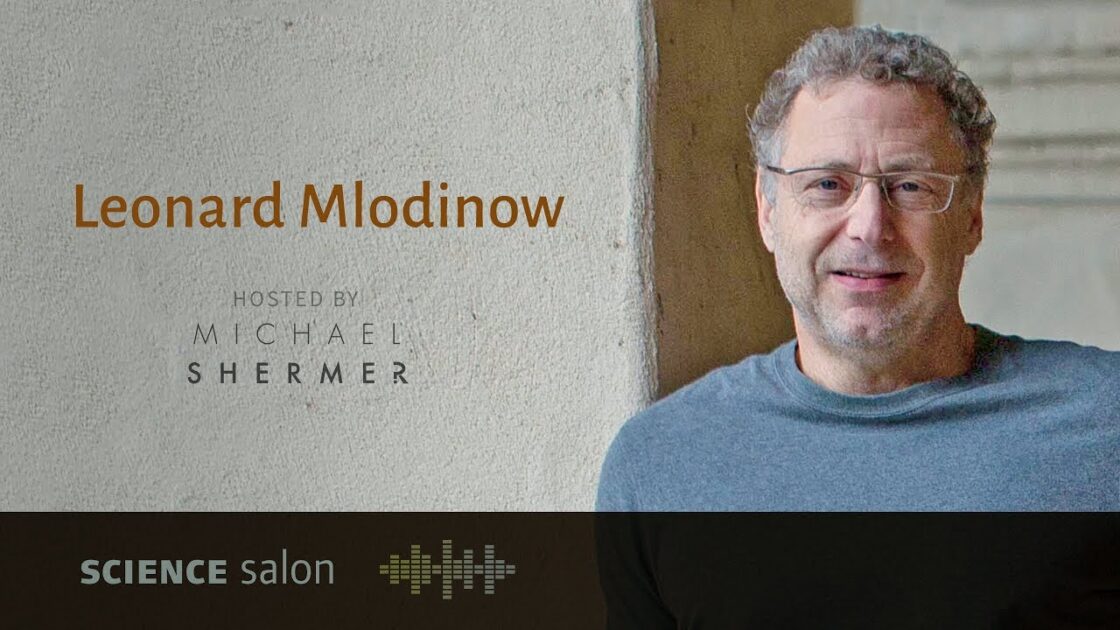
Out of the exploratory instincts that allowed our ancestors to prosper hundreds of thousands of years ago, humans developed a cognitive style that Leonard Mlodinow terms elastic thinking, a collection of traits and abilities that include neophilia (an affinity for novelty), schizotypy (a tendency toward unusual perception), imagination and idea generation, pattern recognition, mental fluency, divergent thinking, and integrative thinking.
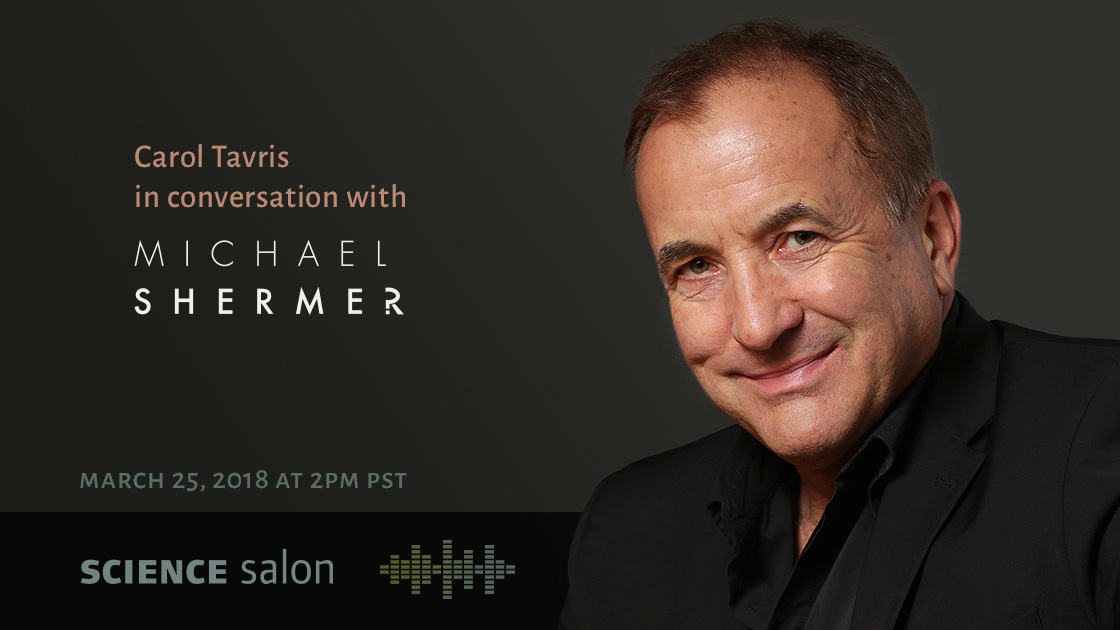
In his most ambitious work yet—a scientific exploration into humanity’s obsession with the afterlife and quest for immortality—bestselling author and skeptic, Michael Shermer, sets out to discover what drives humans’ belief in life after death, focusing on recent scientific attempts to achieve immortality along with utopian attempts to create heaven on earth.
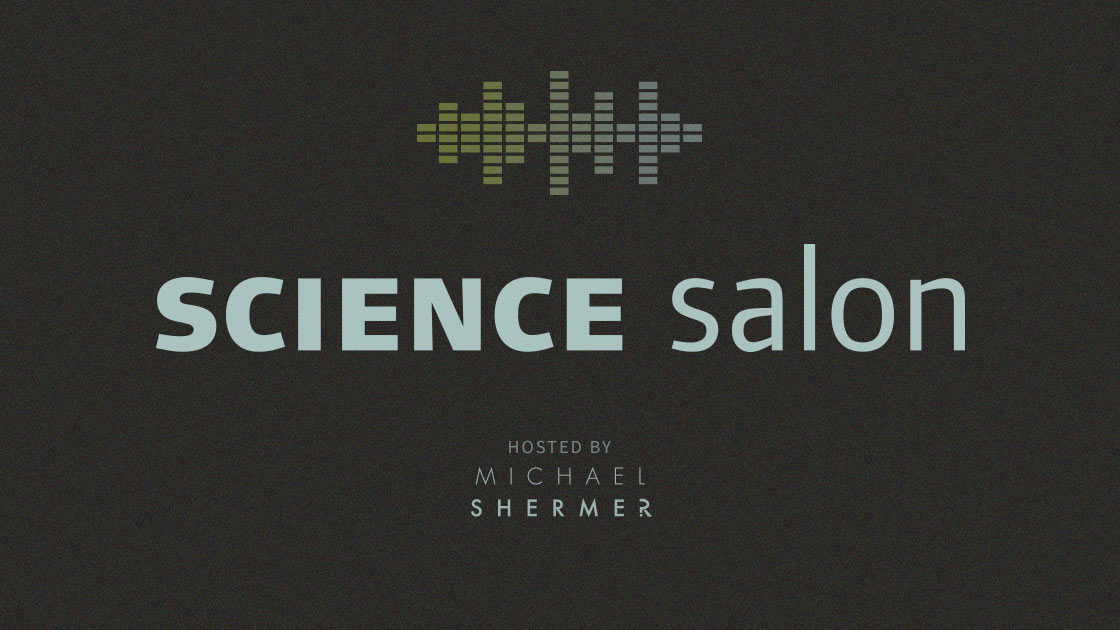
Michael Shermer interviews Bill Nye the Science Guy about his new Netflix series “Bill Nye Saves the World,” which aired Friday, April 21, 2017.
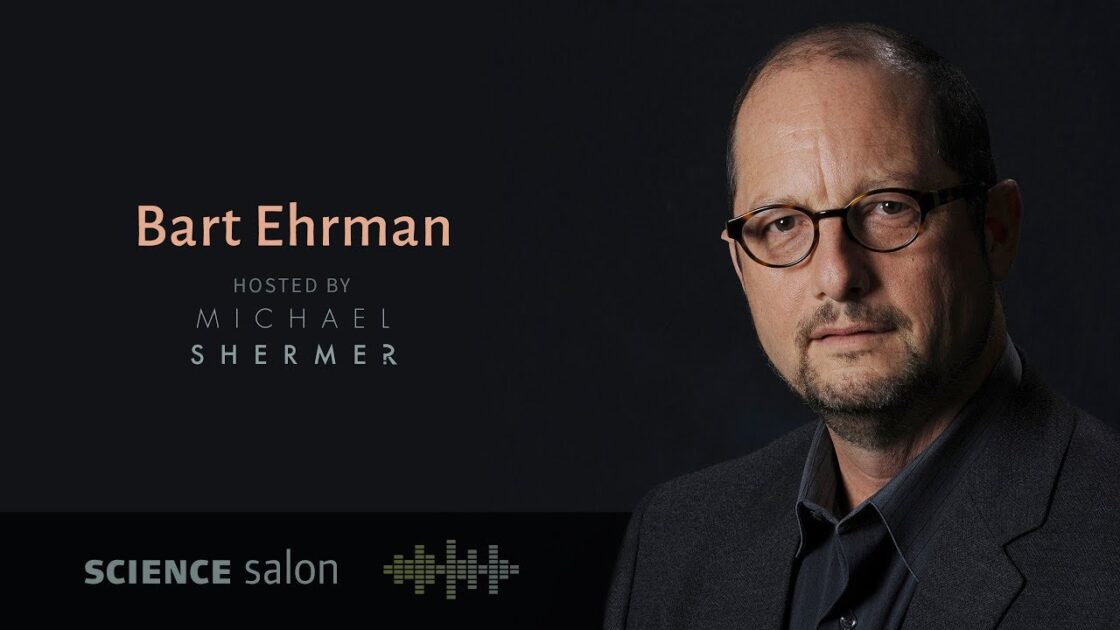
How did a tiny sect of just 20 people at the time of Jesus’ crucifixion in 30 CE became 25 to 35 million Christians by 400 CE? In this remote Science Salon Dr. Shermer converses with the great bible scholar and historian Dr. Bart D. Ehrman, the Distinguished Professor of Religious Studies at the University of North Carolina at Chapel Hill.
← PREVIOUS
NEXT →



























